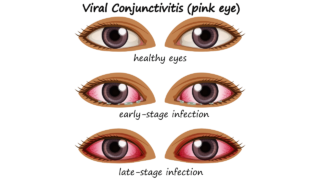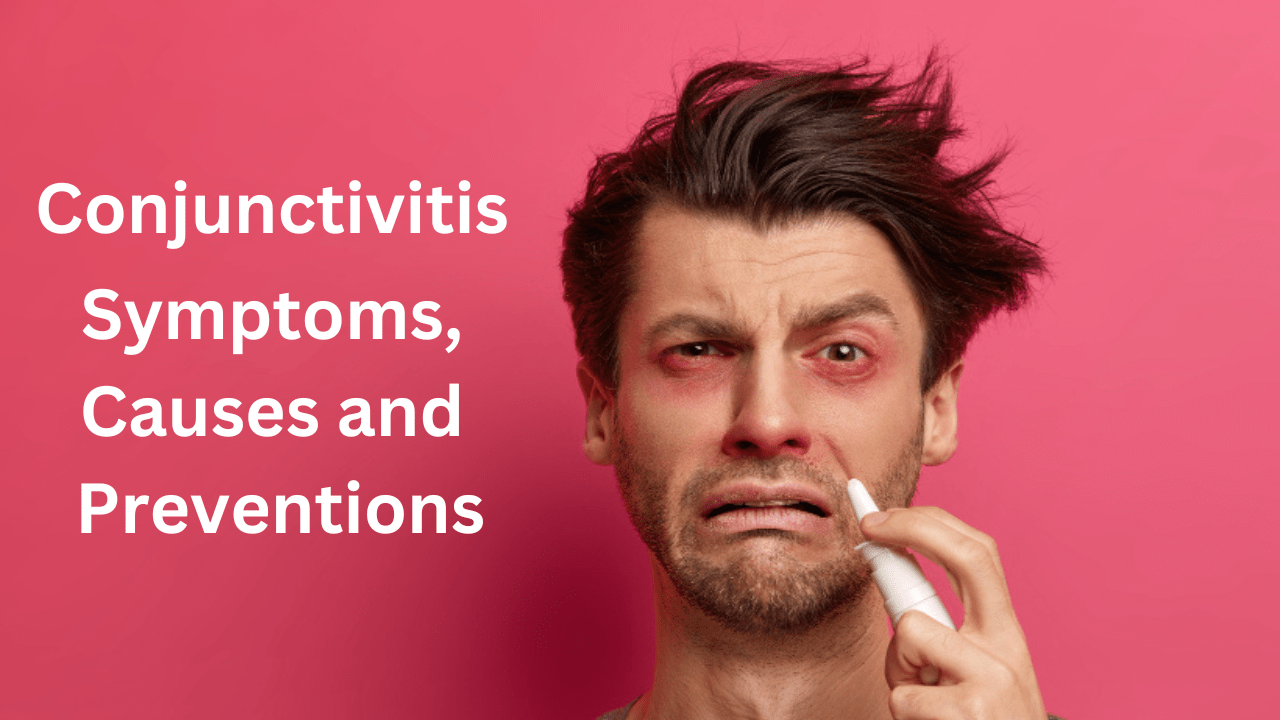What is Conjunctivitis?
Conjunctivitis, commonly known as pink eye, is an inflammation of the conjunctiva, the thin and transparent membrane that covers the white part of the eye (sclera) and lines the inside of the eyelids. It is a prevalent eye condition and can affect people of all ages, but it is especially common among children.

What are the Symptoms of Conjunctivitis?
- Redness in the white part of the eye and inner eyelids.
- Watery or thick yellowish/greenish discharge from the eye, particularly in bacterial cases.
- Itchiness and irritation in the eyes.
- Swelling of the eyelids.
- Increased sensitivity to light.
- Crusty or sticky eyelashes, especially after waking up.
Causes of Conjunctivitis?
- Viral Infection: Most cases of conjunctivitis are caused by viral infections, similar to the viruses responsible for the common cold. Adenoviruses are the most common culprits.
- Bacterial Infection: Bacterial conjunctivitis is caused by various bacteria and can be more severe than the viral form.
- Allergic Reaction: Allergies to substances like pollen, pet dander, or certain chemicals can lead to allergic conjunctivitis.
- Irritants: Exposure to irritants like smoke, pollution, or chlorine in swimming pools can also cause conjunctivitis.
Treatment for Conjunctivitis?
The treatment for conjunctivitis depends on the cause:
- Viral Conjunctivitis: Usually, this type of conjunctivitis clears up on its own within a week or two. Applying warm compresses and using over-the-counter lubricating eye drops can help alleviate symptoms.
- Bacterial Conjunctivitis: Antibiotic eye drops or ointments are prescribed to treat bacterial conjunctivitis. It’s essential to complete the full course of antibiotics even if symptoms improve to prevent recurrence or antibiotic resistance.
- Allergic Conjunctivitis: Avoiding the allergen is the best approach. Over-the-counter antihistamine eye drops or oral antihistamines may help relieve symptoms.
- Irritant Conjunctivitis: Avoiding the irritant is crucial. Applying cool compresses and using artificial tears can help alleviate symptoms.
Prevention of Conjunctivitis?
- Wash hands frequently, especially after touching the eyes.
- Avoid rubbing or touching the eyes with unwashed hands.
- Do not share personal items like towels, pillowcases, or eye makeup.
- If you have conjunctivitis, avoid close contact with others to prevent spreading the infection.


